17. Pan’s Labyrinth (2006)
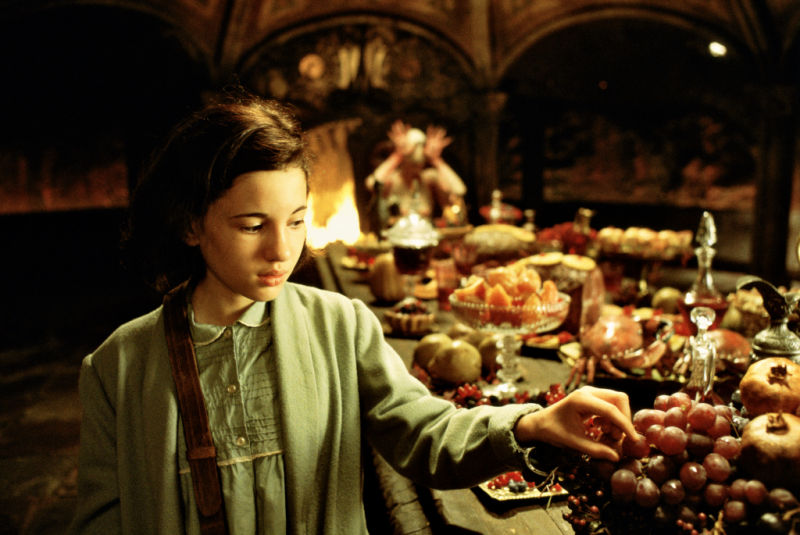
Mexico’s Guillermo del Toro is a veritable master of the macabre and his deeply personal dark fantasy coup de grâce from 2006, Pan’s Labyrinth is a sublime and stunningly beautiful masterpiece. Set in Spain in 1944 where we meet young Ofelia (Ivana Baquero) and her mother Carmen (Ariadna Gil), who is pregnant and whose health is diminishing.
The two women have just relocated to be with Carmen’s new husband, the sadistic army officer Captain Vidal (Sergi López). Ofelia takes an instant dislike to the Captain and soon finds distraction in an ancient maze where she encounters the mysterious and otherworldly Faun, (Doug Jones). Faun tells Ofelia of her forgotten lineage as the lost Princess Moanna and how she must perform three potentially deadly tasks in order to reclaim her throne and the immortality that goes along with it.
Epic in scope, with a poetic Dickensian influence, tangible excitation, a fabulist, fairytale-like cognizance––Alice in Wonderland is another obvious inspiration––making for an elegant flight of the imagination. But make no mistake, this is no children’s movie. The violence of the real world around Ofelia is terrifying and extreme, but del Toro, while never sugarcoating anything or Disney-fying his creations still imbues the film with a sense of wonder, danger, artistic ambition, and compelling, tragic, astounding poignancy.
Not for the faint of heart no, but for the strong of imagination and for the deeply adventurous and bravely devout. Pan’s Labyrinth is a beautiful and terrifying place to get lost in.
16. The Royal Tenenbaums (2001)
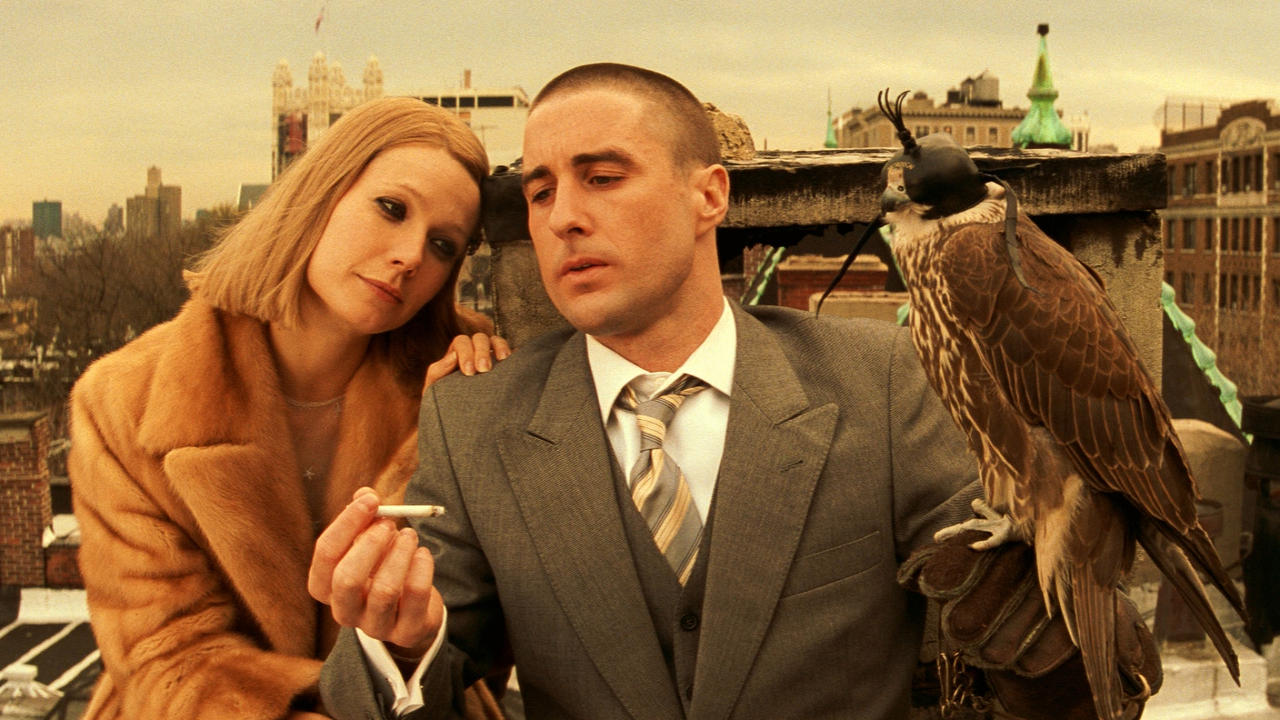
Wes Anderson’s masterpiece might just be 2014’s The Grand Budapest Hotel, but the sentimental favorite has got to be the J.D. Salinger-inspired mini-epic of eccentric family dysfunction, The Royal Tenenbaums.
Co-written with Owen Wilson, this playful and colorful pageant follows fallen patriarch Royal Tenenbaum (Gene Hackman), who learns he’s dying and so seeks to patch things up with his separated wife Etheline (Anjelica Huston), and his three grown children (Ben Stiller, Luke Wilson, and Gwyneth Paltrow).
In their youth the Tenenbaum children were regarded as geniuses, and subject to a certain acclaim and popularity, but after decades of arguing, betrayal, breakdowns, and trauma, their legacy, like Royal himself, is dying.
As the family reunites over a memorable winter the story unfolds, and with achingly detailed production design, expert lensing courtesy of DP Robert Yeoman, a brilliant soundtrack (choice cuts include nostalgic flecked hits from the Ramones, the Rolling Stones, Paul Simon, and many more), and several standout performances (Owen Wilson’s turn as family friend and wannabe Eli Cash is particularly poignant, as is Danny Glover’s Henry Sherman – Ethel’s love interest).
Epic, ironic, and artful to a fault, the Royal Tenenbaums is happy, sad, and something of a sensation. Just as Eli has observed the family for so long and opined that “I’ve always wanted to be a Tenenbaum,” you will to by the end titles scroll.
15. Melancholia (2011)
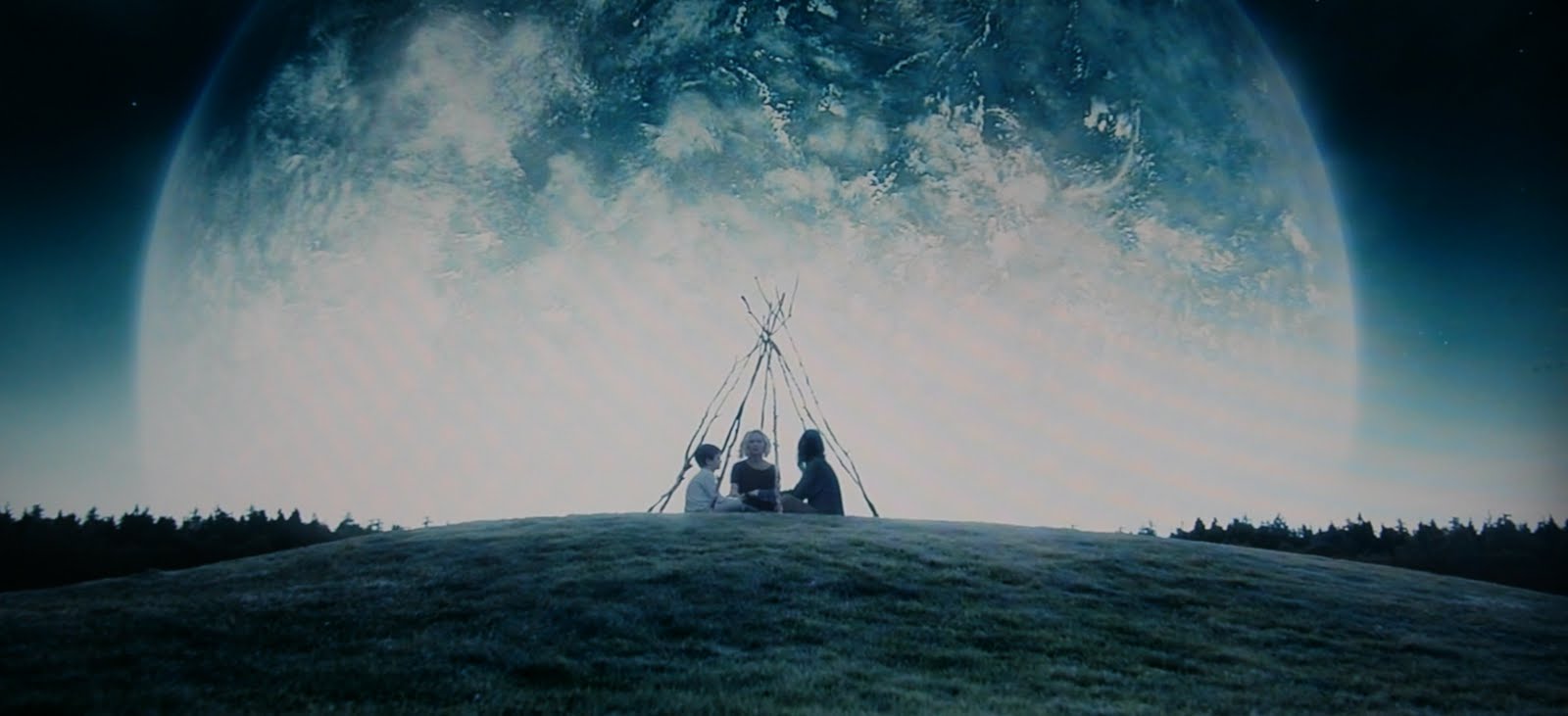
There’s a certain je ne sais quoi about von Trier’s hypnagogic and deeply pensive apocalyptic powerplay Melancholia that cinches it as one of the director’s very finest motion pictures. For one, it’s so rare a thing that a film capture with such startling insight and due diligence the emotional state that depression casts upon the individual, and for anyone who’s wrestled with that black dog they can easily see the naked truth in Kirsten Dunst’s chef-d’oeuvre central performance as Justine.
Von Trier, with Melancholia, playfully and profoundly upends sci-fi convention in a tense and dangerous spring-loaded narrative that pivots around newlyweds Justine and Michael (Alexander Skarsgård).
These ill-fated lovers tie the proverbial knot just as the world learns of the presence of a rogue planet, “Melancholia”, which is believed to be on a near-collision course with Earth and will most certainly be an extinction level cataclysm. And while that synopsis sounds like another dirge from the oft-gloomy von Trier, a fair share of gallows humor inhabits the film––look no further than Udo Kier as the wedding planner of the apocalypse and try not to chuckle at the drollery of it all.
Led by Dunst’s luminous performance, ably backed by Charlotte Gainsbourg as her sister, Claire, both hanging on the speculations and suspicious that the End of Days might not be so dour for everyone. The film also presents a formal elegance––perhaps best displayed by the slo-mo grand-scale eradication gracefully captured by the Phantom HD Gold cameras––resulting in a lushly unforgettable bookend of astonishing and shocking visuals. An absolutely unforgettable showpiece.
14. Children of Men (2006)
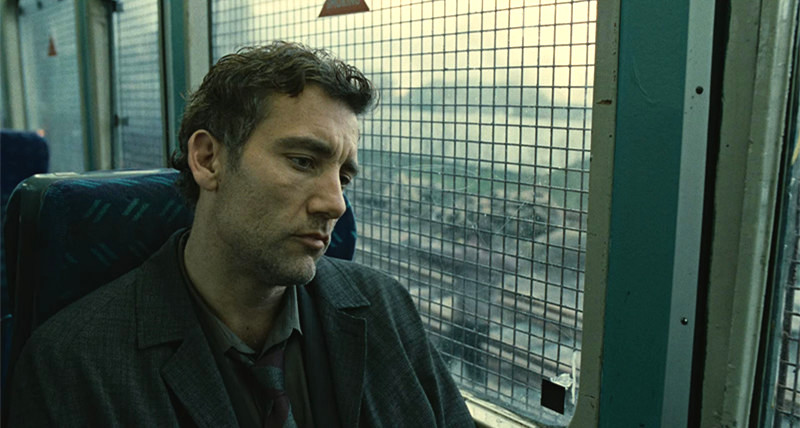
Alfonso Cuarón has directed many wonderful films so far this century that would be worthy of this list (2001’s Y Tu Mamá También or 2013’s Gravity amongst them), but his 2006 dystopian drama Children of Men is the real deal genuine article.
Sharply adapted from P.D. James’ 1992 novel, Children of Men is a bleak, brutal, technically dazzling marvel of misgiving, mental stress, and intense action. Clive Owen leads a champion cast (Clare-Hope Ashitey, Michael Caine, Chiwetel Ejiofor, and Julianne Moore are also on the scene) through the final, fragile days of dying out humanity in the year 2027.
With the human race rendered infertile and all of society crumbling around them, Owen’s derisive civil servant Theo Faron must escort a pregnant refugee (Ashitey) through the chaotic and crumbling remnants of the UK.
The human drama is profound and Emmanuel Lubezki’s award-winning cinematography inundates and overwhelms the viewer constantly. Many innovative and ingeniously clever choreographed single-shot sequences catapults the film into the stratosphere, making it an exemplar of visual sci-fi centric storytelling and easily ranks it here, high amongst the decade’s very best. Wow.
13. The Tree of Life (2011)
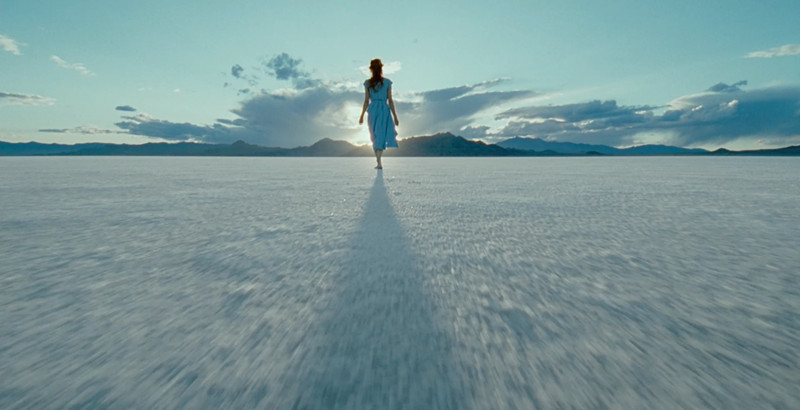
An achingly beautiful cinematic poem on love, life, and being, Terrence Malick’s ravishing, philosophical powerplay The Tree of Life is an unforgettable experimental epic that deservedly received the Palme d’Or at the 2011 Cannes Film Festival.
Ostensibly the story of three brothers from a small town somewhere in Texas. Jack O’Brien has a contentious and difficult relationship with his father (Brad Pitt), but gets along well with his almost ethereal mother (Jessica Chastain). Later, as an adult, though the film is told in nonlinear fashion, Jack (Sean Penn) wrestles with his past while trying to come to terms with his childhood, while also combating feelings of existential panic.
“A mad and magnificent film,” raved The Guardian’s Peter Bradshaw, also praising Malick’s artful vision as an “unashamedly epic reflection on love and loss.”
In addition to the deeply spiritual and poetic grandeur of the film, the cinematography by Emmanuel Lubezki is ravishing and almost overwhelming when combined with Malick’s personal and exalted purpose. The Tree of Life is the very definition of an art film, yes, it’s also one of the most gorgeous and moving treatise on modern man that you’re likely to find.
12. Eternal Sunshine of the Spotless Mind (2004)
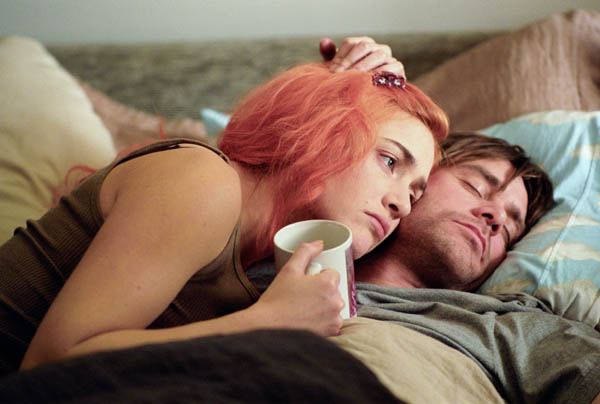
Certainly director Michel Gondry’s finest film to date, and one of screenwriter Charlie Kaufman’s most inspired – with nods to Philip K. Dick – the poetically titled Eternal Sunshine of the Spotless Mind is an emotionally devastating dissection of an abandoned love affair.
A couple on the outs, Joel (Jim Carrey) and Clementine (Kate Winslet) opt to undergo an extreme procedure to erase one another from their memories after their relationship has hit the proverbial rocks. Via the mechanism of loss they discover the fragile love they shared and the heart-spurned anguish that follows is gracefully pronounced and wonderfully articulated.
With far-reaching repercussions and sincere sadness, this film is an intricate, and intimate meta-anti-valentine that is, hence, a laudation to lost love. Wonderful stuff.
11. No Country for Old Men (2007)
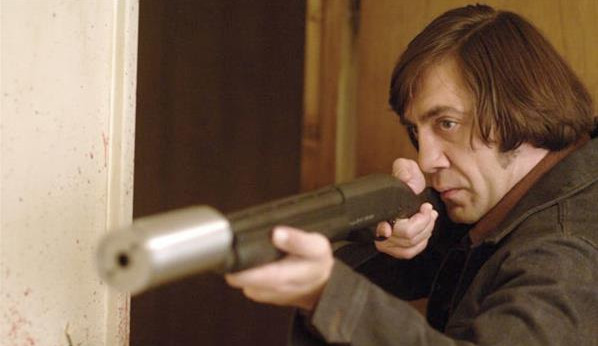
Based off of Cormac McCarthy’s bloody, brutal, and brilliant 2005 novel of the same name, No Country For Old Men is Joel and Ethan Coen’s uncompromising revisionist Western which contains, amongst other dark delights, Javier Bardem’s absolutely terrifying turn as hired hitman Anton Chigurh.
The pulpy plot, set in 1980, concerns lowly Llewellyn Moss (Josh Brolin), perpetually in the wrong place at the wrong time, having not much luck hunting in the Texas desert when he stumbles across the aftermath of a drug deal gone sour –– dead and dying men and their dogs, and could this be a suitcase with a cool two million dollars inside? Llewellyn takes the money and cheeses it and then his troubles begin. Soon Anton is hired to recover the money and nothing short of an act of God will stop him.
The New York Times’ A.O. Scott succinctly said it all when he remarked that “for formalists – those moviegoers sent into raptures by tight editing, nimble camera work and faultless sound design – it’s pure heaven.” It’s heaven all right, and it’s populated by fallen angels with crooked halos, too.
10. Under the Skin (2013)
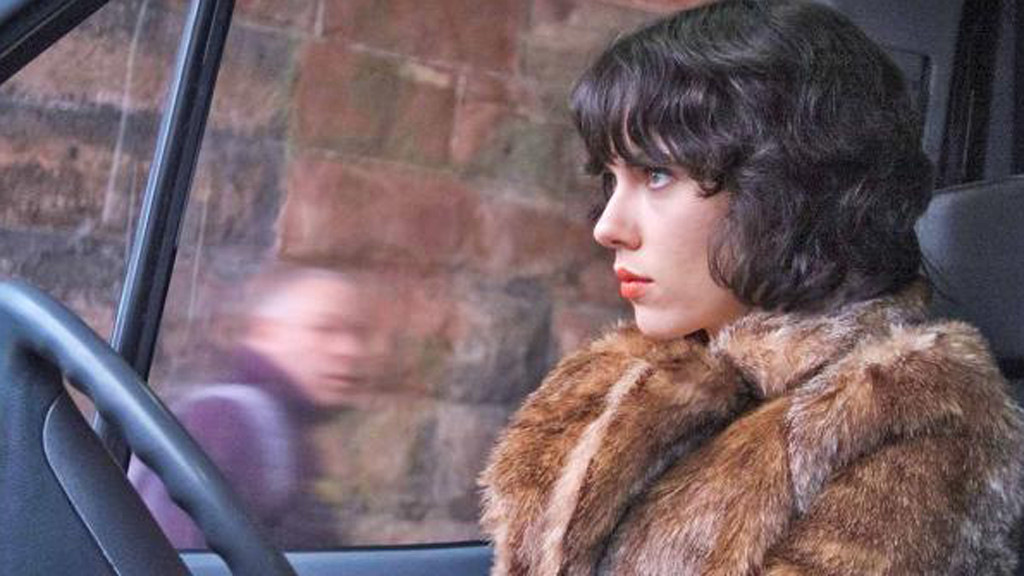
A deeply thoughtful and profoundly shocking exploration of civilization and humanity, Jonathan Glazer spent nearly a decade on this dark hearted epic. Comparisons to Stanley Kubrick and Andrei Tarkovsky are appropriate and easily supported, as are the carefully constructed visual sensibilities and quasi-documentary leanings of Claire Denis and Lynne Ramsay. Loosely using Dutch author Michel Faber’s satirical 2000 sci-fi novel Under the Skin as the alpha of this deep, metaphysical and mercurial treatise on, well, us, Glazer has surpassed expectation.
Scarlett Johansson is outstanding, she shines in a controlled and calculating process as she moves from childlike cherub to rouge-lipped iconoclast, all while saying very little. Seducing working-class blokes at random, she lures them into her alien lair with terrifying and deeply troubling results. Her motives remain unclear in what amounts to an unaffected nightmare.
Mica Levi’s score adds heft to Glazer’s artfully arranged visual compositions, culminating in a third act extravaganza of upset and intrigue.
An elaborate subterfuge of a film, ethereal and arty all the way, it’s an unnerving, unpredictable, and sense-rattling experience that will alternately haunt and reward the patient viewer for days afterwards. Under the Skin does just what its provocative title promises, make no mistake. It’s also something of a masterpiece.
9. Synecdoche, New York (2008)
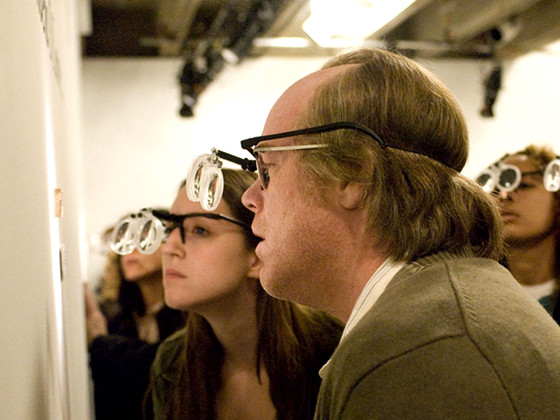
“Ambitious” doesn’t even begin to describe the directorial debut of Charlie Kaufman, the brilliant screenwriter behind such films as Being John Malkovich (1999), Adaptation (2002), Eternal Sunshine of the Spotless Mind (2004).
A postmodern meta melodrama that’s also part existential horror and aching romance as only a fan of Philip K Dick could detail, Kaufman goes all out telling the tale of hangdog theater director Caden Cotard (Philip Seymour Hoffman). Abandoned by his wife and daughter, he seems to have been diagnosed with a strange disease where even his body wants to abandon him and completely shut down.
Living in Schenectady, New York, the direction that Caden’s life takes is deliberately byzantine and more than a little hard to follow (presumably deliberately so) as he gathers a cast of actors to manufacture his fractured opus “Simulacrum”, after receiving money through a MacArthur Fellowship. Soon there’s a play within a play, a wealth of doppelgängers, a house that’s forever on fire, impossibly detailed miniature worlds within worlds in a mock-up of New York, and lots more, of course.
“To say that [Synecdoche, New York] is one of the best films of the year or even one closest to my heart is such a pathetic response to its soaring ambition that I might as well pack it in right now,” wrote celebrated New York Times critic Manohla Dargis, adding: “Despite its slippery way with time and space and narrative and Mr. Kaufman’s controlled grasp of the medium, Synecdoche, New York is as much a cry from the heart as it is an assertion of creative consciousness. It’s extravagantly conceptual but also tethered to the here and now.”